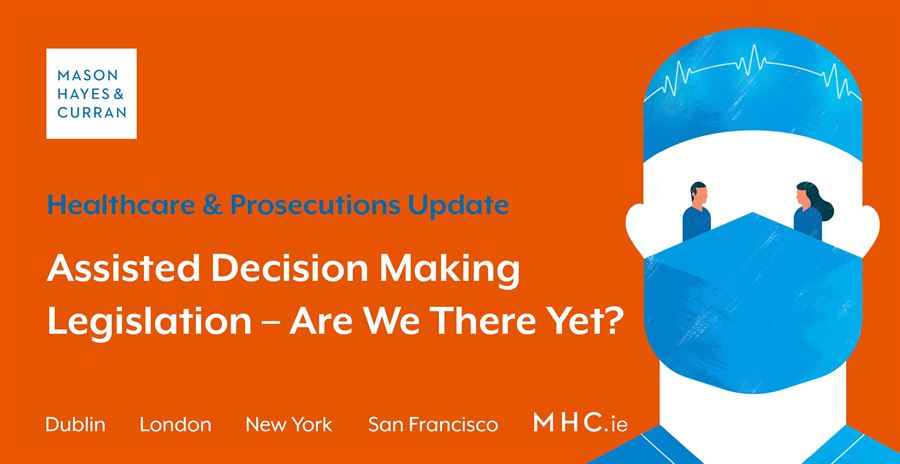Assisted Decision Making Legislation – Are We There Yet?

Although the Assisted Decision Making (Capacity) Act 2015 was signed into law on 30 December 2015, the systems required to implement the legislation have yet to be put in place. It seems there is now change on the horizon as the Decision Support Service have stated their intention to ‘go live’ in mid-2022. We look at what needs to happen, and what it will mean for the High Court’s wardship jurisdiction.
Decision Support Service (DSS)
Once a person has met the statutory functional test for capacity, which is more nuanced than the current test for wardship, they can avail of a three tier system of decision supporters:
-
Decision Making Assistance A person can formally appoint a decision making assistant, who is supervised by the DSS. The person retains ultimate decision making responsibility.
-
Co-Decision Maker In this scenario, a person can appoint someone to make decisions on their behalf on a joint responsibility basis. The co-decision maker is also subject to the supervision of the DSS.
-
Decision Making Representative The Circuit Court can appoint a representative to make certain decisions on behalf of persons who are unable to make such decisions on their own behalf.
In order to implement the above tiers, a number of actions are required including:
-
An Act amending the principal legislation
-
Regulations to be drafted providing for the procedural steps
-
Other stakeholder preparations
High Court Wardship Jurisdiction
It is proposed that current Wards of Court will transition out of the High Court’s jurisdiction within three years of the commencement of the Act. Any Wards who are deemed to have capacity will be discharged from the wardship jurisdiction, while any Wards who continue to have impaired capacity can avail of the appropriate support from the DSS. Although the Circuit Court will become the most common jurisdiction for capacity issues, the High Court will retain it’s jurisdiction to deal with appropriate matters as they arise. This was confirmed in the recent decision in Re JJ. In particular, the legislation is applicable to adults only. Cases involving the withdrawal of life-sustaining treatment and treatment orders would still require the intervention of the High Court.
Conclusion
News that the Decision Support Service is to be up and running by next year is most welcome, and it will provide healthcare professionals with the necessary framework to ensure that those under their care who lack capacity can access the decision making support most appropriate to them.
For more information on this update, contact a member of our Health & Prosecutions team.
The content of this article is provided for information purposes only and does not constitute legal or other advice.
Share this:




